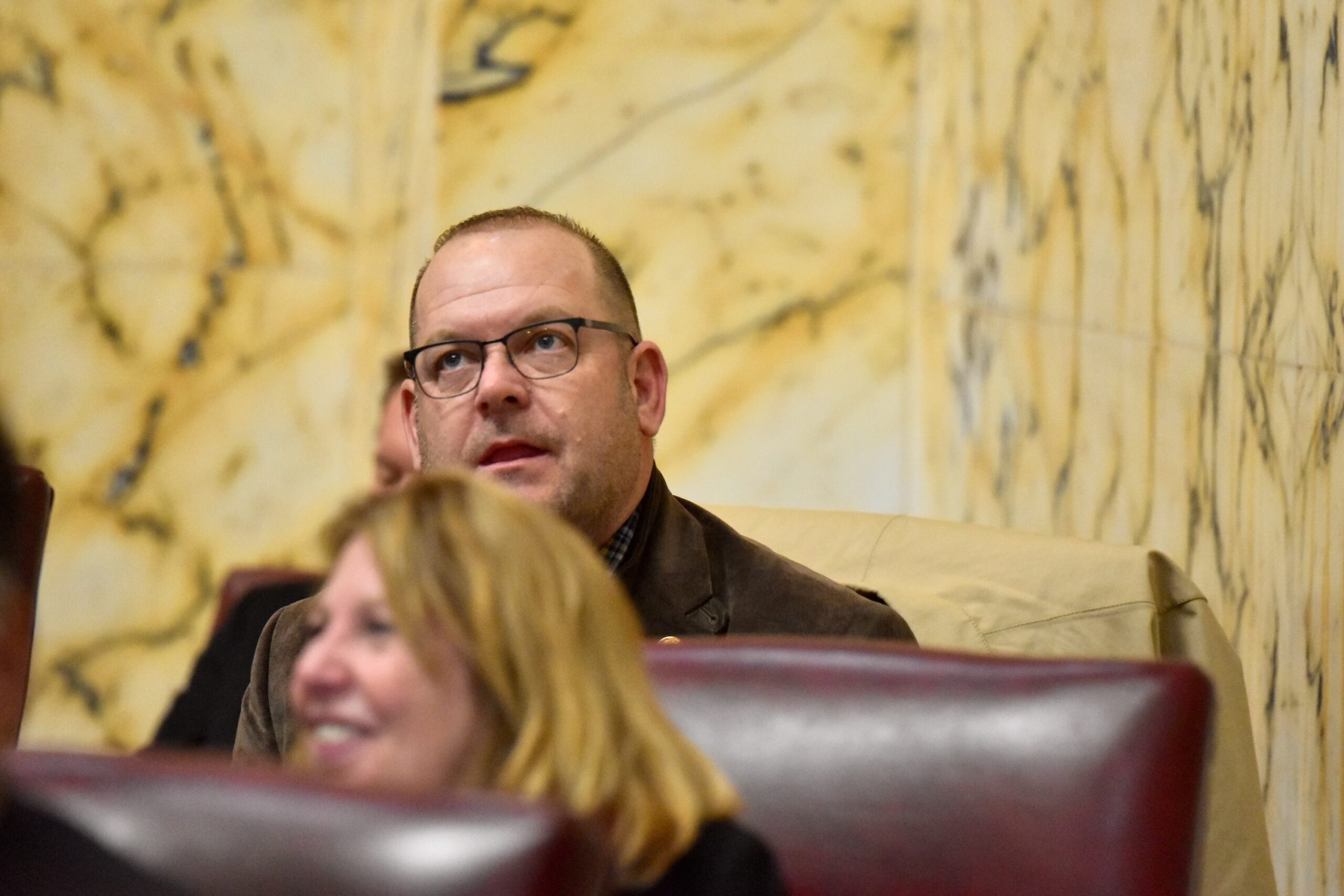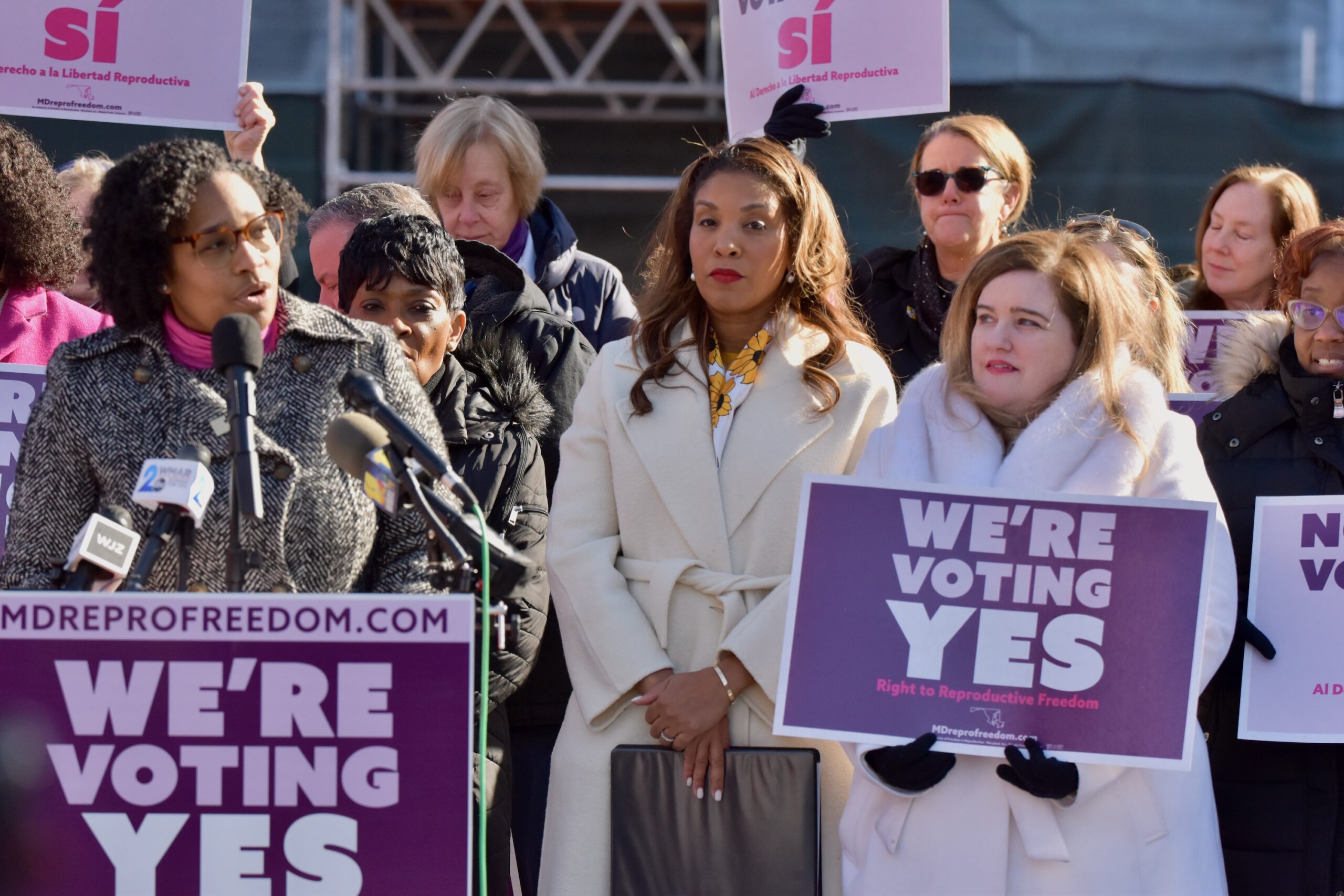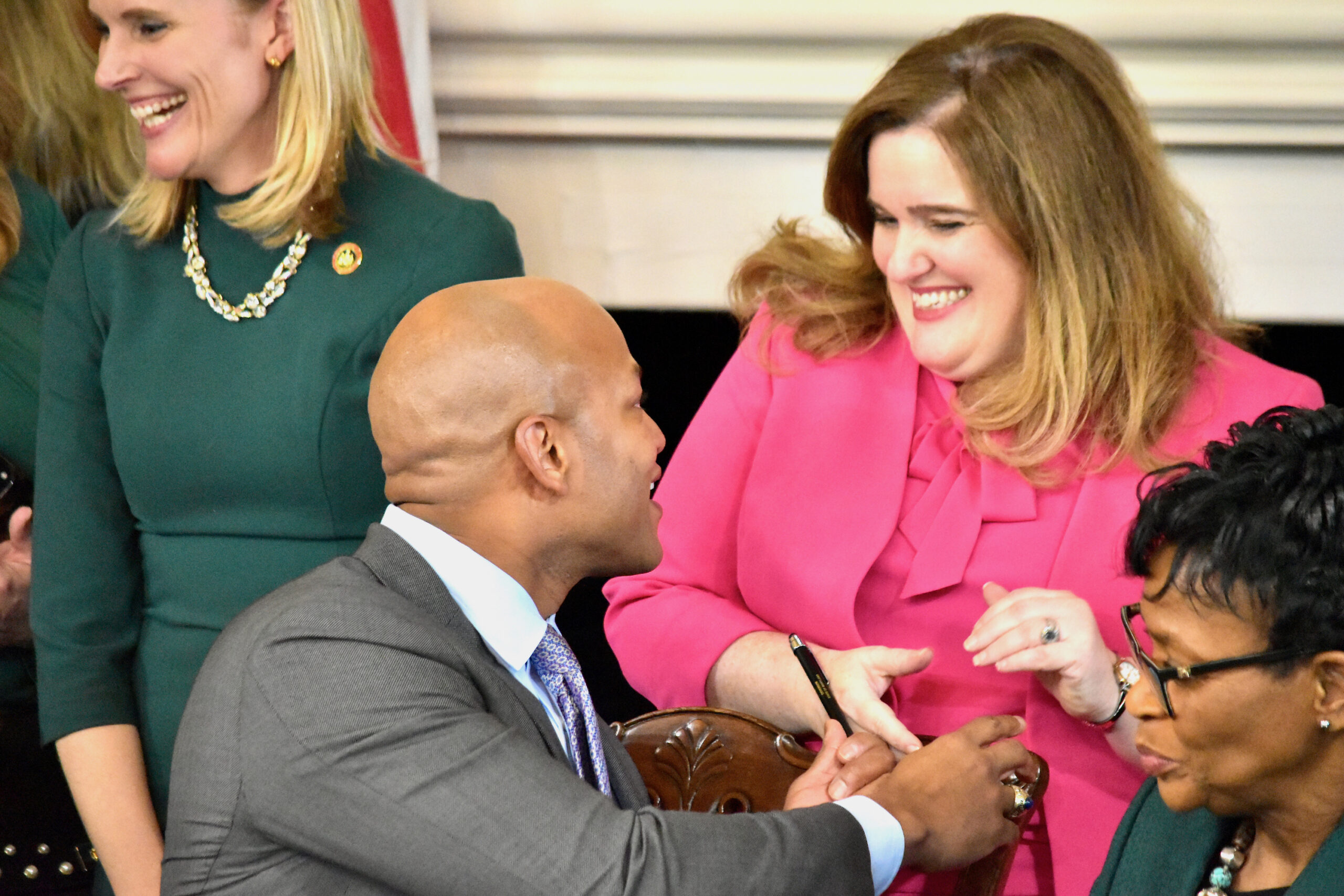Commentary: Littering in Md. can land you in jail for 5 years. Killing someone in a bike lane? Considerably less.

By Dan Langenkamp
The writer is the husband of Sarah Debbink Langenkamp, who was killed while riding her bicycle in Bethesda in 2022.
If you want to kill someone, do it with a car.
So goes the maxim in the street safety community, which is outraged by the light penalties imposed on drivers when they kill pedestrians and cyclists on roadways across America. I am outraged, too.
Eighteen months ago, my wife, Sarah Debbink Langenkamp, a U.S. diplomat and the mother of our two boys, was crushed when a driver for Beacon Building Supply swung his 50,000 pound truck into his parking lot without seeing Sarah, who was riding her bike in a clearly marked bike lane. He struck her handlebars, she fell, and the wheels of his massive truck rolled over her, taking the life of this beautiful and accomplished mother, wife, diplomat and friend to many.
Sarah and I had just been evacuated from Ukraine, a war zone, for our safety, and we had just arrived back in the area weeks before. Sarah was riding home from an open house at our sons’ new elementary school.
You would think the crime of killing a person would engender a punishment worthy of magnitude of the act. After all, Maryland imposes far higher punishments for less serious crimes. The maximum penalty for littering can land you a fine of $30,000 and five years in prison.

The late Sarah Langenkamp and her sons. Photo courtesy of Dan Langenkamp.
Yet when the driver who killed Sarah was sentenced in September, he was handed a sentence for a traffic violation that carried a fine of just $2,000 and 150 hours of community service — the maximum punishment allowed by law for killing a vulnerable road user. His license was referred for a six-month suspension to the Maryland Department of Motor Vehicles. He will likely be driving again next month.
The judge in the case, expressing his own frustration, said the law simply did not give him the ability to impose a stiffer sentence. I’m sorry, he said. The law did not give him the ability to do anything more.
In the wake of the sentencing, I have worked with Montgomery County State’s Attorney John McCarthy, Del. Sara Love, and Sen. Ariana Kelly to craft a bill that would help rectify this situation. It is an elegant change to fix a gap. Why not, McCarthy suggested, give some of the same protections to people in bike lanes and shoulders that exist for pedestrians in crosswalks in Maryland?
The Sarah Debbink Langenkamp Memorial Safety Act (HB 337 in the Maryland House and SB 315 in the Senate) does just that, and a bit more. The penalties are modest — up to 60 days in jail and/or a fine of up to $2,000 for a person who causes a crash with a cyclist in a bike lane or shoulder. (The fine for crosswalks is slightly more modest, just $1,000). It is a far cry from the penalty for littering, but is it far better than the current law. And it sends an important signal to all drivers that bike lanes and shoulders are special — protected and safe for cyclists.
There is a clear precedent for providing these protections. We create substantial penalties for drivers who speed in school zones, pass stopped school buses, and provide jail time for those who hit pedestrians in crosswalks. As a society we agree that it is not only cars who have a right to use our roads.
Safety for cyclists and pedestrians is an issue for everyone — including Marylanders of color. Across the nation, Black Americans are nearly 3.5 times more likely to die than whites while biking, according to one recent study. The rates of people of color dying while cycling rose at nearly double the rate as those for white cyclists (with white deaths rising 27% compared to 46% for Latinos and 48% for Black Americans between 2010 and 2020).
Sarah’s death has robbed our country of an extraordinary diplomat — a star of our generation of foreign service officers, and irreparably changed every minute of my family’s present and future, eliminated half our income, and cut down a beautiful, strong, intelligent mother and role model for our boys.
She was just one of nearly thousands of “vulnerable road users” to die on our roads in 2022, when more bikers were killed than since 1994 and when more pedestrians died than in 40 years.
Meanwhile, the roads of our industrialized peers are getting safer and safer every year. Pedestrians are twice as likely to get killed on our roads than in Canada.
Stiff penalties alone for killing won’t solve the problem, but they will do something.
Sarah’s bill says we care about more than just littering. We care about life, too.




 Creative Commons Attribution
Creative Commons Attribution